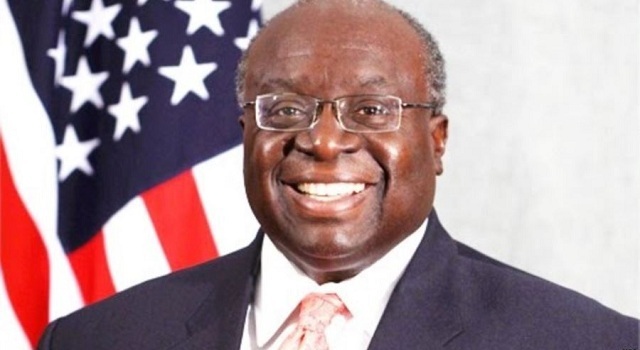



The United States ambassador to Zimbabwe, Harry Thomas
BULAWAYO — The United States ambassador to Zimbabwe, Harry Thomas, has said reviving the once thriving textile industry in the second city could be a big challenge for the city following the emergence of global giants in Asia who are producing textiles much cheaply.
The cheap imports from Asia have had the effect of undercutting prices for local manufacturers who have to grapple with high overhead costs, purchase of raw materials and higher wages.
Thomas was recently in the country’s former industrial hub on a familiarisation tour of Matabeleland during which tour he visited different institutions and met with key stakeholders who included civic society organisations and the media.
At its prime in the early 1990’s, Bulawayo boasted of a vibrant textile industry led by giants such as Merlin, Security Mills and many others which have since closed shop as a result of the prevailing liquidity crunch and cheap imports from Asia.
Plans to revive the textile industry in Bulawayo have been hit by stop-start challenges since 2011.
Initiatives such as the Distressed Industries and Marginalised Areas Fund, launched by the government and Old Mutual which was earmarked for struggling firms, could not help the turnaround of the textile industry in the city.
“To bring manufacturing back is very difficult as we have found it in the United States; many textile industries have shut down even in the United States,” said Thomas.
He said he had also lived in countries such as India, Bangladesh and Ethiopia which had been affected by the failure of textiles sector just as Bulawayo. He said Bangladesh had however managed to recover.
Washington’s top envoy to Harare said instead of trying to create jobs by reviving the textiles sector, Bulawayo should instead look for other alternatives such as focusing on new technologies and making the city a technological hub.
The US embassy in Harare also encouraged American nationals to invest in the country.
“Clearly, we encourage American investors to look at all parts of Zimbabwe and we would like American investors to make a decision to invest in Zimbabwe,” said Thomas. “We have spoken to American investors who are interested in poultry farming, fish farming, and dairy farming and so on, but those are decisions that American business persons have to make on their own. We do not have a programme where we say you go here, you go there; that is for individuals who look at the situation on the ground as well.”
The ambassador said working with the tourism sector from their country, the US government would also encourage American tourists who come into Zimbabwe to visit all parts of the country for the benefit of all citizens.
“In 2014 over 57 900 Americans visited Zimbabwe, but the lion’s share went to Victoria Falls and some to Hwange, but why not Matopos, why not other parts of Zimbabwe?” Thomas asked.
He also challenged Zimbabweans from other parts of the country to apply for jobs that would be created at new US embassy under construction in the capital.
Relations between Harare and Washington have in the past decade or so been frosty after the US slapped the country with so-called targeted sanctions that include a ban on financial support to the country. The country has only been giving humanitarian support to Zimbabwe, and has been the biggest donor to the health sector.
The economic sanctions imposed in 2002 were triggered by the chaotic land reform exercise, which displaced nearly 6 000 former white commercial farmers.
newsdesk@fingaz.co.zw
Follow us on Twitter @FingazLive and on Facebook – The Financial Gazette